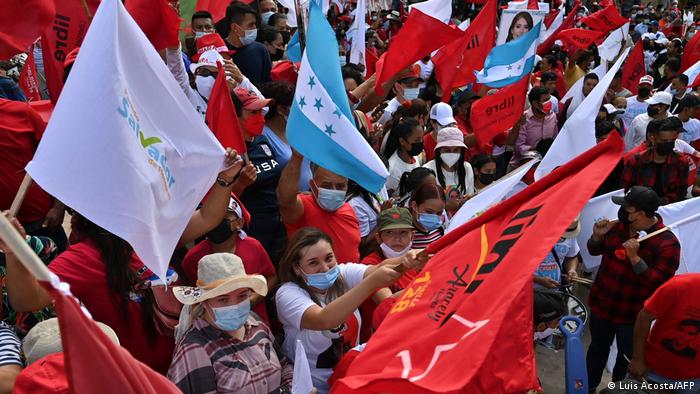Leftist opposition candidate, Xiomara Castro, has claimed victory in Honduras’ presidential election, with preliminary results putting her in pole position against the ruling party candidate.
With 38% of the voting tally complete, the Liberty and Refundation Party (LIBRE) candidate is in the lead with over 53 percent votes. Her main rival, Nasry Asfura of the ruling conservative National Party, currently has nearly 34% of the vote, according to the National Electoral Council (CNE).
If Castro holds on to the lead, she would become the first female president of the Central American country, ending the conservative party’s 12-year stint in power.
“We win! We win!” Castro, 62, told cheering party supporters on Sunday evening. “Today the people have made justice. We have reversed authoritarianism.”
In a brief victory address, Castro vowed to form a government of “reconciliation,” and to strengthen direct democracy with referendums, adding that “there will be no more abuse of power in this country.”
“We can’t stay home. This is our moment. This is the moment to kick out the dictatorship,” said Castro, who is making third bid at the presidency. She is the wife of former President Manuel Zelaya, whose government was toppled by a civilian-military alliance in 2009.
The outgoing President, Juan Orlando Hernandez, was accused by a US court of having ties to powerful drug trafficking gangs. However, he has denied the allegations.
Hernandez has faced stiff opposition in Honduras since he claimed a second term in a highly-divisive election at the end of 2017, which sparked widespread protests after both sides declared victory.
READ ALSO: EU considering southern Africa travel ban over new COVID strain
Unlike Hernandez, who was a conservative US ally, Castro has said that she would have diplomatic relations with China.
According to the electoral council, the voting saw a historic turnout of more than 68 percent.
The election is the latest political flashpoint in Central America, a major source of growing US-bound migrants fleeing chronic poverty, unemployment and persecution.
The spiraling crisis of hunger and homelessness in Honduras has placed it among the world’s most violent countries.
Alongside the presidency, the country’s 128-member Congress, and officials for some 300 local governments, are also being voted in these elections.













